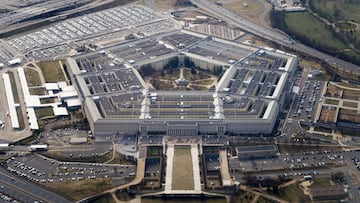Would the US send troops to a potential conflict between Israel and Iran?
Not a question of if but how many troops will be sent to the Middle East as tensions rise and a regional war feels inevitable.


Already, thousands of US troops have been sent to the Middle East in large part to act as a deterrent force against Iran and non-state actors allied with the regime. It is not a question of whether or not troops will be sent, but instead one of how many. The current number is around 43,000, but the Department of Defense (DoD) will be careful not to reveal too much about their position. A recent statement put out by the Department made clear that the US military believes it to be “well-postured to defend U.S. personnel, allies, and partners.”
The Chicago Council on Global Affairs conducted a poll this summer that asked respondents in the US if they would support the sending of US troops to the region in the case that Iran did attack Israel. The results show that the national security branch of the state will have to undertake a PR campaign, with more than half of those surveyed saying they did not support sending troops to the region. For Democrats, the numbers sit at about a third of party members supporting the sending of additional forces to defend Israel, with the researchers noting that respondents cited the devastation in Gaza as the basis for their opposition.
Although a majority of Americans oppose sending US troops to defend Israel if it is attacked, they support using American forces as peacekeepers in an agreement between Israel and the Palestinians. More @ChicagoCouncil survey results: https://t.co/M7tqya3sNt
— Chicago Council on Global Affairs (@ChicagoCouncil) August 12, 2024
More troops are being moved into the region
The day before Iran’s strike on Israel, made up of nearly 200 ballistic muscles, the DoD announced it would send another “few thousand troops” to the region. Defense Secretary Lloyd Austin III said in a statement that he was “deeply proud of the skill and the bravery” of troops that had assisted Israel in shooting down the missiles as they were able to “save lives” and “prevent a widening conflict or escalation.” Iran cited the assassinations of Hamas political leader Ismail Haniyeh and Hezbollah Secretary General Hassan Nasrallah for the attack. It warned that Israel should not retaliate further if it wishes to keep the conflict contained. The Israeli government has rejected these warnings, stating publically that they will respond. US government officials have confirmed that they are in communication with their partners in Israel to determine what a possible retaliation could look like.
Related stories
There are some limits on what the US would support in terms of a retaliatory strike. President Biden announced on Thursday that he did not support attacks by Israel that would target Iran’s nuclear program, as that would likely cause the conflict to spin out of control. The comments were made after the president arrived in North Carolina to survey the damage done by Hurricane Helene. A reporter asked, “Would you support an attack on Iran’s nuclear sites by Israel?” to which the President responded, “The answer is no.”
Biden when asked whether he supports an Israeli attack on Iran's nuclear sites: "No" pic.twitter.com/CKFjjeiR6Z
— Drop Site (@DropSiteNews) October 2, 2024
The DoD has confirmed that the USS Cole and the USS Bulkeley are both in the eastern Mediterranean. Both vessels are guided missile destroyers, which can be used to shoot down munitions like those launched during Iran’s most recent attack. In addition to the forces being brought into the region, thousands of service members are stationed at US military bases in the Middle East, North Africa, and Europe.
Complete your personal details to comment